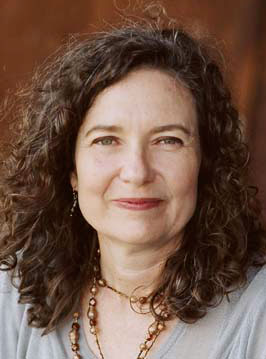Blog
The FCC Report on Information Needs of Communities: A Moment of Truth for Public Media: Part I
For Press Inquiries:
ITVS President & CEO Sally Jo Fifer responds to the FCC’s significant report on the impact of technology on the media landscape.

How will 21st century media serve the public interest and local communities? That’s the question a number of recent reports have tackled, most significantly the summer publication of the Federal Communication Commission’s 465-page The Information Needs of Communities. In the report, the FCC takes a hard look at what’s happening on the media landscape and provides a deep context for today’s transformation, referencing the words of Founding Fathers and Google executives alike alongside a huge mine of data and myriad anecdotes about court reporters, carrier pigeons, camera phones, and just about everything else under the sun.
It’s a semi-monumental report that raises many questions with few answers. But the way it asks the questions tasks all of us to put our heads together — and our resources and goodwill — to figure things out. And fast. As the report reminds us: “Americans need to at least come together around one idea: that democracy requires, and citizens deserve, a healthy flow of information and a news and information system that holds powerful institutions accountable.”
The FCC report echoes and provides exhaustive detail for the conclusion of a bipartisan Knight Commission that inspired it, quoting its 2009 diagnosis: “The digital age is creating an information and communications renaissance. But it is not serving all Americans and their local communities equally. It is not yet serving democracy fully. How we react, individually and collectively, to this democratic shortfall will affect the quality of our lives and the very nature of our communities.”
The response to the FCC report has been interesting. Many laud its analysis and criticize its recommendations for various reasons — for suggesting too much or too little government policy and investment, for abandoning or sticking with existing strategies, for putting too much or too little trust in the marketplace. In short, as with so many things on today’s politicized landscape, there is some agreement about the problems and very little about the solutions.
The call to action, however is clear, as the FCC writes: “It is time to move past some of the false dichotomies. Do we need professional or citizen reports? Obviously we need both. Do we need old media or new media? Again, both. Objective or advocacy journalism? Commercial or nonprofit? Free or paid? Both, both and both…. “A shortage of reporting manifests itself in invisible ways: stories not written, scandals not exposed, government waste not discovered, health dangers not identified in time, local elections involving candidates about whom we know little. …Why should we worry about shortages in the midst of such abundance? To switch metaphors, one can imagine an old-fashioned bucket brigade, each citizen passing water to the next to put out a raging fire. In many cases, we now have more citizens, more buckets, and less water.” It’s a vivid metaphor. But it’s unclear if less water—less valuable information—is really the problem, although the FCC certainly documents the decline of professional and particularly accountability journalism.
The question is: Where do those old-fashioned lines of buckets lead? The aerial pyrotechnics of celebrity lives, disasters, sex scandals, and political dogfights are being well doused, and groups have formed their own lines leading off toward roaring campfires of their favorite team, hobby, or cause. But the buckets leading to the vast wildfires that touch every community — poverty, illiteracy, participatory business and government, discrimination, the abuse of private and public power — have dwindled, with half of the already the scarce drops wasted by sworn enemies splashing one another in the fray.
The FCC report is an un-ignorable reminder that every information revolution — from pigeons to broadband — requires an equally revolutionary effort to achieve a working balance between marketplace and democracy, where the rule of the people does not overwhelm commerce and commerce does not undermine democracy. The message of the FCC report is clear: The effort is not happening, and it’s time to figure out how to get everyone — government, public media, nonprofits, foundations, media makers, companies, and citizens —to do something about it. Well, what should we do? In Part II, I’ll explore how this debate directly impacts ITVS, independent producers, and the public media ecosystem.